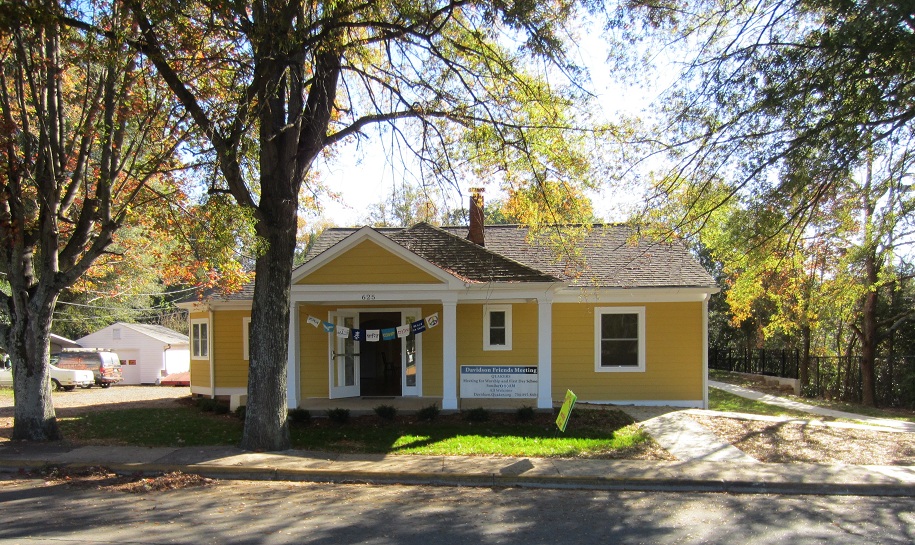Frequently Asked Questions

What do Quakers believe?
That there is a divine source of love and life that we can each experience and that being able to share those experiences in community deepens our faith and understanding.
That being grounded in Godís love is the basis for all other interactions.
That there is that of God in everyone and that we are called to love one another and to treat the physical world around us with respect and care.
What are Quaker testimonies?
The testimonies grow out of lived expressions of faith. The number and names of the testimonies vary across Quaker
communities but usually include Simplicity, Integrity, Peace, Community, and Equality. Each testimony takes as its
core the belief that we are called to love one another and live in ways that show respect and care for all creation.
This can include plain and careful speech, saying only what we mean and no more, living frugally so as to have more to
share, speaking out for justice and ending discrimination, working for peaceful solutions and living in ways that
reduce conflicts.
In what ways do non-members participate?
In the Davidson Meeting, non-members are welcome to participate in worship gatherings including business meeting,
teaching first day school classes (children and adult), serving as representatives to other Quaker bodies and
participating on committees. The only restrictions are that only members generaly serve on the Ministry & Counsel
committee or as meeting clerk.
What is the light within?
In Quaker writings from the 1640s into the 20th century, the light within referred to Christ. That each person had
innate knowledge of God, though that amount might vary from person to person. It was a way of saying that we are
connected to God and to one another through God. For some 20th and 21st century Quakers, the light within is used
to refer to an awareness of mystery and love without a direct naming of God.
Are all Quakers pacifist?
The Religious Society of Friends is known as one of the Peace Churches along with the Church of the Brethen,
Mennonites and Amish, because members have refused to serve in militaries and have worked to ameliorate conflicts
around the world. The Quaker commitment to Peace grows out of the belief that all of creation is holy; that we all
carry that of God within us and we are called to love one another and live in the life and power that takes away the
occasion for war. Because Quakers hold first that each person must discern their callings and follow the Inward Teacher,
responses to war and aggression are lived out differently.
What is conscientious objection?
While there is an official U. S. military definition (http://co.quaker.org/Writings/SelectiveServiceAct.htm),
the broader Quaker understanding includes decisions to refuse to serve in a military capacity that requires armed combat,
the refusal to serve in the military in any capacity and even the refusal to pay federal taxes in support of military
operations on the basis of a spiritual belief that such actions are inherently wrong.
How does one contribute funding to the meeting?
The meeting gratefully accepts donations. There is a box located in the fellowship space. Checks may be written to "Davidson Friends Meeting."
Treasurerís reports are available for any interested.